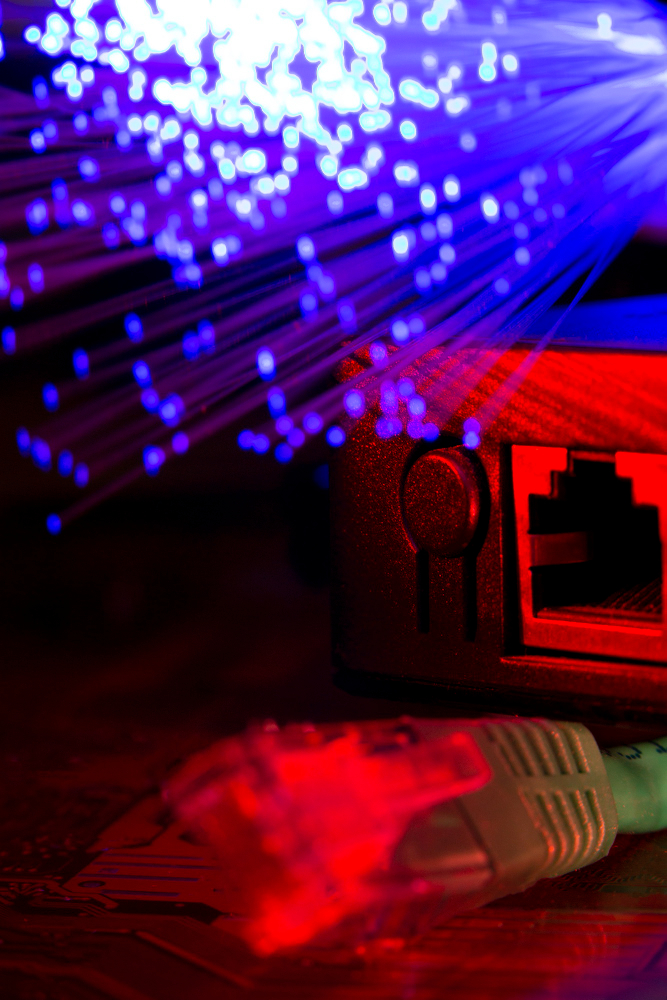
In today’s fast-paced digital world, having a reliable and high-speed internet connection is no longer a luxury; it’s a necessity. From streaming high-definition videos and gaming to working from home and attending online classes, the internet is at the core of nearly every aspect of modern life. Among the various options available, fiber internet stands out as the gold standard for speed, reliability, and performance. If you’re looking for the best fiber internet, this article will guide you on why fiber technology is ideal and what factors to consider when choosing a connection.
What Is Fiber Internet?
Fiber internet uses fiber-optic cables to transmit data at incredibly fast speeds. Unlike traditional copper cables, which rely on electrical signals, fiber-optic cables use light signals to transfer information. This technology allows for significantly higher bandwidth, lower latency, and better overall performance. Whether you’re downloading large files, participating in video calls, or playing online games, fiber internet offers a smoother and faster experience.
Benefits of Fiber Internet
1. Super-Fast Speeds
One of the biggest advantages of fiber internet is its speed. Fiber connections can offer speeds up to 1 Gbps or even higher. This makes it ideal for households with multiple users or devices, ensuring everyone can enjoy a seamless online experience without interruptions.
2. Reliable Connectivity
Fiber internet is less prone to interference compared to other types of internet connections, such as DSL or cable. This means you can count on a stable connection even during peak usage times. Unlike copper cables, fiber-optic cables are resistant to weather conditions and physical damage, further enhancing reliability.
3. Low Latency
Latency refers to the time it takes for data to travel between two points on a network. Fiber internet offers incredibly low latency, which is crucial for activities like online gaming, video conferencing, and live streaming. With low latency, you can enjoy real-time interactions without delays or buffering.
4. Symmetrical Speeds
Many fiber internet providers offer symmetrical upload and download speeds, which is a significant advantage. For example, if you have a 500 Mbps plan, you’ll likely get 500 Mbps for both uploading and downloading. This is particularly beneficial for remote workers, content creators, and gamers who frequently upload large files or live stream content.
5. Future-Proof Technology
Fiber-optic technology is designed to support the growing demand for high-speed internet. As technology continues to evolve, fiber internet is well-equipped to handle the increasing data needs of households and businesses. Investing in fiber means you’re opting for a future-proof solution.
Choosing the Best Fiber Internet
While fiber internet is undoubtedly an excellent choice, not all fiber plans are created equal. Here are some tips to help you find the best fiber internet for your needs:
1. Understand Your Usage Requirements
Consider how you use the internet. Are you a casual user who primarily browses the web and streams videos, or do you need a high-speed connection for gaming and remote work? Understanding your needs will help you choose a plan that offers the right balance of speed and affordability.
2. Check Availability in Your Area
Fiber internet is not yet available everywhere. Before making a decision, check if fiber is offered in your neighborhood. Coverage is typically better in urban areas, but rural availability is improving as providers expand their networks.
3. Evaluate Bandwidth Options
Fiber internet plans come with a range of speeds to suit different needs. If you have a large household or use data-intensive applications, opt for a plan with higher bandwidth. For light users, a basic plan may suffice.
4. Consider Cost and Value
While fiber internet is often more expensive than other types of connections, it offers unmatched value in terms of speed and reliability. Compare plans to ensure you’re getting the best value for your money. Keep an eye out for hidden fees, such as installation or equipment charges.
5. Look for Customer Support
Reliable customer support is essential when choosing an internet service. Opt for a provider known for prompt and helpful customer service to ensure a smooth experience in case of technical issues.
Why Fiber Internet Matters
The demand for high-speed internet is only going to grow as more people embrace digital lifestyles. Fiber internet’s ability to deliver consistent speeds and handle heavy data loads makes it a top choice for both households and businesses. Whether you’re streaming 4K movies, hosting virtual meetings, or downloading massive files, fiber internet ensures you can do it all without any hiccups.
Moreover, fiber internet supports smart home devices seamlessly. From smart thermostats to security cameras, these devices require a stable and fast connection to function effectively. With fiber, you can manage your smart home without worrying about connectivity issues.
Fiber internet is undeniably one of the best choices for those seeking a fast, reliable, and future-proof internet connection. Its benefits, including ultra-fast speeds, low latency, and consistent performance, make it a clear winner compared to traditional internet options. By understanding your needs and considering factors like availability, cost, and customer support, you can easily find the best fiber internet to meet your requirements.






Leave a Reply